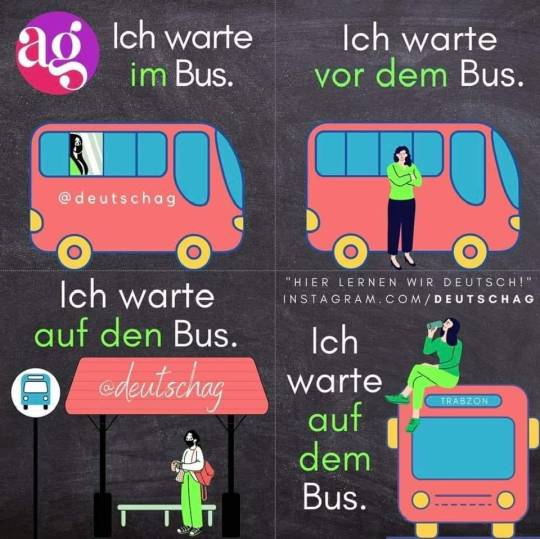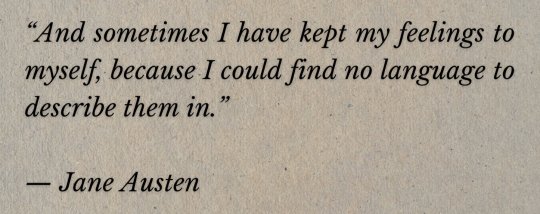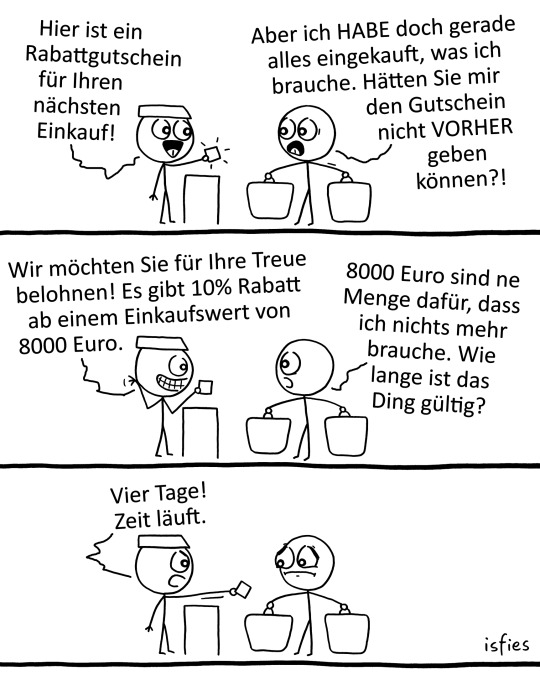Text









a girl who’s going to do big things cannot let small things get to her
944 notes
·
View notes
Text
phrases beyond "Hallo, wie heißt du?" because this is the website where people care
Was sind deine Pronomen? - What are your pronouns?
possible follow-up for queer interactions: Gibt es jemanden, vor dem die Pronomen und dein Name geheim bleiben sollen? - Is there someone for whom your pronouns and name should stay secret?
Darf ich dich umarmen? - May I hug you?
Sind Umarmungen okay für dich? - Are hugs okay for you?
Ich mag keine Umarmungen, dafür aber [High-Fives/Fist-Bumps/___]. - I don't like hugs but [high-fives/Fist-Bumps/___] work.
58 notes
·
View notes
Text
All die Worte die du mir gesagt hast habe ich nie vergessen, denn sie sind in meinem Kopf abgespeichert in einem ganz besonderen Ordner.
#meinzitat || Instagram: inaxha
152 notes
·
View notes
Text
Random German Vocabulary (97)
die Abwärtsspirale -- downward spiral
der Docht (pl. die Dochte) -- wick
die Nebelschwaden (pl.) -- wisps of fog
der Zauberlehrling -- sorcerer's apprentice
besänftigen -- to soothe; to calm
knarzen -- to creak
(jemanden) schmähen -- to malign (someone)
verunglücken -- to have an accident
absolviert -- successfully completed
evolutionär -- evolutionary
frappierend -- striking; remarkable
gerechtfertigt -- justified
mit knapper Not -- narrowly; barely
zwischen Tür und Angel -- in passing
(das) ehrenamtliches Engagement -- volunteer work
hoher Besuch -- distinguished guest
26 notes
·
View notes
Text
Ich wünschte ich könnte unsere Zeit noch ein letztes Mal erleben, dein Ich liebe dich noch ein Mal hören und es mit dir noch ein letztes Mal genießen.
@xinaxh
298 notes
·
View notes
Text
hey, if you ever wanted to learn russian, here is a online textbook called Между Нами and here is the pdf download link to the classroom activities workbook and the homework workbook. it has audio so you can listen and read and one of the first exercises in the homework book is teaching you how to write in russian cursive. it is for complete beginners and in my opinion is a way better (and ad-free) way of learning russian compared to the many language learning apps out there.
456 notes
·
View notes
Text
German dass-Sentences
dass, when spelled with two s is not an article but starting a subordinate sentence, like a "that" might:
Ich weiß, dass ich klug bin.
I know that I am smart.
Unlike in English, you have to separate the subordinateclause with a comma!
Like in English, you can pull the relative clause in front of the main sentence. You'll then have to reverse the word order though! (verb to the end)
Ich weiß, dass ich klug bin. -> Dass ich klug bin, weiß ich.
I know that I am smart -> That I am smart, I know.
Here's a bunch of starters:
Ich weiß, dass... (I know that...)
Ich glaube, dass... (I believe that..)
Ich denke, dass ... (I think that...)
Er sagt, dass... (He says that...)
Es ist wichtig, dass man/du/wir... (It's important that one/you/we ...)
Sie behaupten, dass... (They claim that...)
Wir hoffen, dass... (We hope that...)
Sie sagt, (dass) sie hofft, dass du bald wieder gesund wirst.
(She says (that) she hopes that you'll be well soon.)
Ich denke, dass das keine gute Idee ist.
(I think that that is not a good idea.)
192 notes
·
View notes
Text
ohne Punkt und Komma reden
literally: to talk without periods and commas
to talk continuously, to not let the other person have their say
61 notes
·
View notes
Text
Doch - one of the best German words
"Ich habe deine Mutter nicht getötet" - Doch!
"Ich habe nicht gelogen" - Doch!
"Du wolltest doch nicht mitkommen" - Doch!
Doch has many meanings, among the best is used above. Duden calls this usage:
"als gegensätzliche Antwort auf eine negativ formulierte Aussage oder Frage in Konkurrenz zu „ja“ bei einer positiv formulierten Frage und in Opposition zu „nein“"
(as contrary answer to a negative statement or question..."
So what does "Doch" mean here?
You say doch when someone makes a negated claim (I didn't kill your mother; i didn't lie; you didn't want to come with) and you want to say that in fact they DID/you DID
-> it's negating a negated statement/question
Doch can also be used in different ways (though not as fun):
"Es wird doch nichts passiert sein?" -> strengthens the question, similar to "surely...?"
"Das ist doch nur dumm!" -> fortifies unhappiness or frustration in a Statement/question, similar to "straight up, simply..."
"Ihr kommt doch heute Abend?" -> fortifies hope in a statement/question, like "you ARE coming, RIGHT?"
(you tell the two apart by overall mood of the person speaking)
"Wie ging der Text doch gleich?" -> implies the person knows the thing they ask about but can't recall at the moment
"Sie kommt doch nicht mit" -> confirms something that had been a theory up until then, similar to "after all"
532 notes
·
View notes
Text
German Vocabulary: Painting
die Acrylfarbe – acrylic paint
die Aquarellfarbe – watercolour paint
das Aquarellpapier – watercolour paper
das Bindemittel – binder; binding agent
die Borsten (pl.) – bristles
der Fächerpinsel – fan brush
die Farbe – colour; paint
der Firnis (pl. die Firnisse) – varnish
die Gouache – gouache
die Grundierung – primer
das Harz (pl. die Harze) – resin
das Leinöl – linseed oil
die Leinwand (pl. die Leinwände) – canvas
der Malgrund (pl. die Malgründe) – [painting] surface
der Malkasten – paintbox
das Malmittel – medium
der Napf (pl. die Näpfe) – pan [of watercolour]
die Ölfarbe – oil paint
das Ölmalpapier – oil painting paper
die Palette – palette
das Palettenmesser – palette knife
das Pigment (pl. die Pigmente) – pigment
der Pinsel (pl. die Pinsel) – brush
der Schwamm – sponge
der Spachtel – painting knife
die Staffelei – easel
die Tafel – panel
das Terpentinöl – turpentine
die Tube – tube
das Verdünnungsmittel – thinner
das Wassergefäß – water container
die Acrylmalerei – acrylic painting
das Aquarell – watercolour
der Effekt (pl. die Effekte) – effect
der Entwurf – sketch, outline
die Komposition – composition
die Lasur – glaze
die Lavierung – wash
die Malerei – painting
die Ölmalerei – oil painting
die Skizze – sketch
der Pinselstrich (pl. die Pinselstriche) – brushstroke
die Technik – technique
die Textur – texture
der Ton (pl. die Töne) – shade; tone
aquarellieren – to paint in watercolours
aufspannen – to stretch
lasieren – to glaze
malen – to paint
maskieren – to mask
mischen – to mix; to blend
reinigen – to clean
trocknen – to dry
tupfen – to dab
tüpfeln – to dot
überziehen – to coat
verdünnen – to thin; to dilute
blass – pale
dunkel – dark
durchsichtig – transparent; clear
flüssig – liquid
glatt – smooth
gleichmäßig – even; consistent
lichtdurchlässig – translucent
marmoriert – marbled
monochrom – monochrome
nass – wet
rissig – cracked
transparent – transparent
trocken – dry
überlappend – overlapping
wasserlöslich – water soluble
fett auf mager – fat over lean
hell-zu-dunkel – light to dark
nass-in-nass – wet-on-wet
nass-auf-trocken – wet on dry
93 notes
·
View notes
Photo

https://www.facebook.com/photo?fbid=592267812945832&set=a.311858110986805
130 notes
·
View notes
Photo

https://www.facebook.com/photo/?fbid=561692462798670&set=a.475375251430392
106 notes
·
View notes
Text
A little German text style guide
Here are some rules about how to use quotation marks, dates, times, numbers, and addresses in German texts:
Quotation marks:
Quotation marks in German texts usually look like this:
„Hallo, ich heiße Espen.“
„Ich glaube nicht“, sagte er, „aber ich bin mir nicht sicher.“
Er sagte: „Ich habe einen Apfel gegessen.“
Date:
The date is written in the form day/month/year, usually like this:
am 3. August 2023 (read: "am dritten August 2023")
am 03.08.2023 (read: "am dritten August 2023")
Time:
The time is usually stated in a 24 hour format (otherwise you add 'in the morning' or 'in the evening' to clarify):
Es ist 18:40 Uhr. (read: "Es ist 18 Uhr 40")
Es ist 4 Uhr nachmittags.
Numbers:
The points and commas in numbers look like this:
eleven thousand = 11.000 (e.g. 11.000 Maschinen)
eleven point three = 11,3 (e.g. 11,3% Umsatz)
Address:
Addresses on letters are usually written like this:
Max Mustermann (first & last name)
Musterstraße 11 (street name & house number)
12345 Musterstadt (postcode & city)
Germany (country)
422 notes
·
View notes
Text
youtube
Learn Swedish, Lesson 3: Summer and Outside
6 notes
·
View notes



